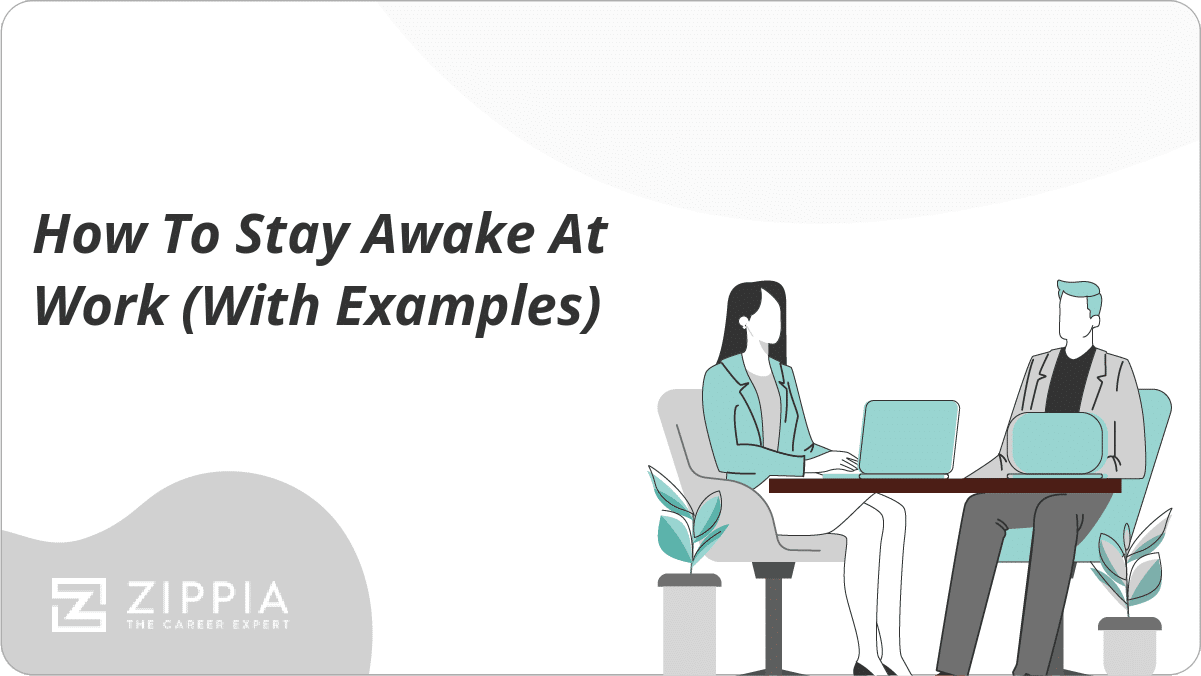- Office Etiquette
- Office Etiquette
- Dating A Coworker
- April Fools Pranks For Work
- How To Be A Good Employee
- Pet Peeves List
- How To Write A Project Proposal
- Qualities Of A Good Worker
- How To Get Along With Your Boss
- What Engaged Employees Do Differently
- What To Say Instead Of Sorry
- How To Send A Friendly Reminder Email
- How To End A Conversation
- Sorry For The Delay
- Tattoos In The Workplace
- Sorry For The Late Reply
- How To Respond To A Compliment
- How To Toot Your Own Horn
- How To Call Out Sick Even If You're Not
- How To Get Fired
- How To Decorate Your Cubicle
- Stay Awake At Work
- New Employee
- How To Introduce Yourself Professionally
- Welcome New Employee Announcement
- Welcome Letter
- Thank You Note To Colleague
- 30/60/90 Plan
- Getting To Know You Questions
- Job Satisfaction
- Team Building Activities
- At Will Employment
- Company Culture
- Corporate Culture
- How To Succeed At Your New Remote Job
- How To Prepare For New Job Orientation
- How To Create An Employee Handbook
- Hostile Work Environment
- Hostile Work Environment
- How To Deal With A Difficult Coworker
- What Is Human Resource Development (HRD)?
- I Hate My Job
- Burnt Out At Work
- Condescending Coworker
- Sexual Harassment In The Workplace
- Work Environment
- My Job Sucks
- Favoritism At Work
- Respect In The Workplace
- Wagner Act
- Documentation In The Workplace
- Unconscious Bias
- Ageism
- What To Do When You Feel Unappreciated At Work
- How To Respond To A Warning At Work
- How To Deal With A Passive Aggressive Coworker
- What To Do When You're Unhappy At Work
- I Hate My Boss
- Gaslighting Boss
- Signs You're Underpaid
- Insubordination At Work
- Avoid Crying At Work
- What To Do When You Can't Stand Coworkers
- How To Handle A Boss That Hates You
- Missing Work
- Communicating
- Send Retirement Wishes
- Write A Congratulations Email
- Professional Voicemail Greeting Examples
- Made A Mistake At Work
- Google Tricks
- Appeal Letter
- Employee Morale
- How To Write A Professional Email
- Out Of Office Message
- Small Group Icebreakers
- Memo Format
- Memo Examples
- Cell Phone At Work
- Meeting Minutes
- Communication Barriers
- How To Take Notes
- How To Brainstorm
- Ask For A Mental Health Day
- Transfer Request Letter And Email Examples
- How To Write A Business Proposal
- How To Deal With A Lazy Coworker
- How To Write A Rejection Letter
- How To Say No
- Scheduling
- Personal Goals
- How To Avoid Distractions At Work
- What To Do When You're Overqualified For The Job
- Signs Of A Layoff
- How To Find A Mentor
- Why Don't People Like Me?
- Signs That You're A Control Freak
- Questions To Ask Yourself
- Career Development
- I Have No Idea What I'm Doing
- Bored At Work
- What Is A Digital Nomad?
- Reasons You Have No Motivation To Work
- How To Stop Selling Yourself Short
- How To Ask For A Promotion
Find a Job You Really Want In
Let’s face it — we’ve all probably been there: you’re sitting at work and find yourself nodding off. Getting tired on the job at some point or another is bound to happen.
Let’s talk about why you’re constantly nodding off and what can you do to prevent yourself from catching a few Zs at work. We’ll also discuss what you can say to your boss if you’re caught falling asleep at work and what you can do to prevent it from happening in the future.
Key Takeaways:
-
If you start to notice you are falling asleep at your desk, aim for a 5-10 minute break every hour to walk around and refresh your eyes.
-
Improving things in your daily life such as sleeping better at night, better diet, and exercise can help you feel more energized at work.
-
If you are caught sleeping by your boss, make sure to apologize and make it known you know it’s unacceptable behavior.
-
Falling asleep can be because of boredom, excessive screen time, burnout/ stress, and hating your job.

How to Stay Awake At Work
Falling asleep at work might be a one-day affair or it might be a frequent issue for you. In either case, we’ve got advice for how to stay at work, ranging from long-term solutions to quick fixes.
Here are a few ways to prevent falling asleep on the job:
-
Stand up and try using a standing desk. It’s tough to fall asleep when you’re on your feet. Standing desks are good for circulation, focus, and posture. If you can utilize both a standing desk and a regular one, definitely take advantage of standing to stay awake at work.
-
Take several brief breaks. Activity breaks are great for keeping the mind fresh. But if you take too long of a break, you may just nod off and get caught sleeping on the job. Instead, aim for a 5-10 minute break every hour to walk around and refresh your eyes.
-
Take walks. Walks before work and during work can do a lot to keep you going. If you have a casual meeting with only a few colleagues, consider making it a walk and chat (if the other attendees are down and it’s a nice day out). Exercise relieves stress and gets your blood pumping, which can help you stay awake at work.
-
Drink caffeine. We probably don’t need to tell you this, but our list wouldn’t be complete without some coffee, tea, energy drinks, or however else you get your daily hit of caffeine. Beware of diminishing returns, as coffee addicts can easily snooze even with a few cups in them. Consider mixing up your source of caffeine to ensure efficacy.
-
Drink a lot of water to prevent dehydration. Coffee is great and all, but drinking cold water gets your metabolism going as well. Being fully hydrated makes it easier for your body to work effectively, which will help keep your mind working at peak performance as well.
-
Listen to upbeat music. Whether it’s big band, electronic, opera, rock and roll, or anything in between, listen to some tunes that get you excited. Just remember to use headphones so you don’t annoy your coworkers.
-
Brighten up your space. Open the blinds on your windows and keep the space bright. The light your eyes take in plays a role in telling your body how sleepy it should be.
While you don’t want painful synthetic light or bright glare in your face, keeping your space relatively bright and well-ventilated will go a long way in waking up and staying awake.
-
Eat healthy, protein-rich snacks. Emphasis on the “healthy” part. While super salty or extra sugary snacks might make a nice pick-me-up, the energy they provide quickly dwindles and leaves you feeling more exhausted than you started. Instead, opt for healthy snacks like nuts, dried fruit, and whole wheat grains.
-
Use an essential oil diffuser. Essential oil diffusers make your office space smell great, but they can also provide a significant energy boost. Research shows that peppermint, lemon, rosemary, spearmint, and sweet orange essential oils are among the best for decreasing fatigue and increasing focus.
-
Nap before work. Third shift really messes with your sleep schedule, so you should try to commit to a regular sleep schedule where you’re usually awake for the nighttime. But if you can’t make that work regularly, then try taking a nap before your shift starts to hold drowsiness at bay for a few more hours.
-
Complete easier tasks first. If a giant task is crushing your motivation before you even begin, dozing off at your desk can become extra-attractive.
Instead, start with “fuzzy-brain” activities — those ones you can do without much concentration or stress. It’s a good way to slowly adjust your brain to the fact that yes, it is in fact time for work.
-
Keep cool. Being warm and cozy naturally makes us sleepy. Turn up the A/C, get a fan going, or splash some cold water in your face to wake up and stay awake.
-
Talk with a coworker. If you are feeling yourself drifting off or not able to concentrate, try talking to a coworker around you. Engaging in a conversation can help stimulate your brain and help you focus better.
Even if you are still talking about work related things, sometimes getting up and walking away from your area for a few minutes can help you regain your focus.
-
Implement lifestyle changes. The above are “quick fixes,” but if you have a chronic sleep problem, consider making some significant lifestyle changes.
-
Get better sleep. If you can’t sleep at night but are exhausted during the day, consider using a health supplement like melatonin to help get a full night’s rest. Don’t allow yourself to fall asleep in bad positions on your couch with the TV on. This sleep is less restful than what you’d get in bed.
-
Limit blue light at night. You’ve probably heard that the blue light emitted from our screens can keep your brain awake. As bedtime approaches, limit how much screen time you have or wear blue-light glasses to eliminate your intake of this wavelength if you need to interact with screens.
-
Exercise. Regular exercise helps our body’s circadian rhythms stay tight. You’ll be more tired at night and the quality of your sleep will improve if you’re exercising.
-
Cut down on drinking. Alcohol is a depressant, so it does help some people fall asleep. However, the quality of your sleep when you go to bed a little tipsy is dramatically worse. Even if you get the same amount of sleep, you won’t be nearly as rested as someone who went to bed sober.
-
What to do If You Are Caught Sleeping At Work
You’ve probably experienced that terrible moment when you’re suddenly woken up by your boss calling attention to your daytime napping situation.
-
The first thing you need to do if caught falling asleep at work is apologizing. Make it known that you know this is not acceptable behavior.
-
Most importantly, make a plan and share with your boss about how you will prevent falling asleep at work from happening in the future.
-
Sometimes, falling asleep can be understandable when you’ve had a crazy week or two and the entire team is trying to push through to the end of a project. Everyone is at the end of their energy and struggling, so falling asleep for a few minutes so you can keep plowing on ahead might not be a huge problem.
-
However, if you have been consistently sleeping at work and find it hard to stay awake even though you’ve had enough sleep, bigger problems can arise. Employers want their employees to be as productive as possible with their time — they don’t want to be paying you to nap.
What Can Cause You to Fall Asleep Often at Work
Falling asleep at work can happen for a variety of reasons and some of them may even be out of your control. But before you blame your falling asleep at work on those reasons, let’s look at other reasons why you might have trouble staying awake at your desk.
Here are some reasons why you and sleep have become fast friends at work:
-
Boredom. If you are bored or don’t enjoy your job, sign up to help with new projects, create some rec sports leagues with your coworkers or take short breaks throughout the workday and do something that motivates you. You can also consider applying to new jobs that might be a better fit for you.
-
Screen time. Lots of screen time can both wire up your brain and also make your eyes exhausted. During the day, protect your eyes by reminding yourself to blink and set a timer on your watch for an eye break once an hour. At night, limit screen time so that your brain has a chance to wind down and get a good night’s rest.
-
Burnout, overworked, or stressed. If you are burnt out or overworked, make sure you take self-care breaks and create work boundaries for home and your off-hours. Burnout and stress go hand-in-hand, so make sure you take the time to manage your stress.
-
Hungover. maybe you’re just a little hungover. If you are falling asleep after a late night out and one too many beers, consider limiting your weeknight activities. And remember: Sunday night is a weeknight.
-
You don’t enjoy your job. When you don’t enjoy a job your motivations level get low and you don’t want to do anything. This could cause you to get tired at your desk and fall asleep. Also, if you don’t enjoy your job, you may not care if you get fired so a nap at your desk might not matter to you.
If none of these reasons apply to you, you might consider medical options that might be causing your daytime sleepiness:
-
Chronic health conditions like diabetes or sleep disorders
-
Medication side effects
Many health conditions can increase daytime sleepiness and fatigue. If you are falling asleep constantly at work, consider discussing this problem with your primary care physician.
Final Thoughts
Staying awake and focused for the entire workday, seven days a week can be difficult. Many people have felt drowsy at work, but unfortunately, falling asleep at work does not make you look like a hard-working employee.
That’s why we’ve given you tips and tricks to staying awake at work. Daytime sleepiness is often a problem that can be helped by some easy lifestyle changes. However, sometimes you need in-the-moment help to stay awake. In addition to reaching for another cup of coffee, try out some of our other tips like exercise, snacks, and music.
Although being caught falling asleep can be nerve-wracking, this article can help you create an action plan to prevent it from happening in the future so you’ll get back on track to be your company’s next employee of the month.
- Office Etiquette
- Office Etiquette
- Dating A Coworker
- April Fools Pranks For Work
- How To Be A Good Employee
- Pet Peeves List
- How To Write A Project Proposal
- Qualities Of A Good Worker
- How To Get Along With Your Boss
- What Engaged Employees Do Differently
- What To Say Instead Of Sorry
- How To Send A Friendly Reminder Email
- How To End A Conversation
- Sorry For The Delay
- Tattoos In The Workplace
- Sorry For The Late Reply
- How To Respond To A Compliment
- How To Toot Your Own Horn
- How To Call Out Sick Even If You're Not
- How To Get Fired
- How To Decorate Your Cubicle
- Stay Awake At Work
- New Employee
- How To Introduce Yourself Professionally
- Welcome New Employee Announcement
- Welcome Letter
- Thank You Note To Colleague
- 30/60/90 Plan
- Getting To Know You Questions
- Job Satisfaction
- Team Building Activities
- At Will Employment
- Company Culture
- Corporate Culture
- How To Succeed At Your New Remote Job
- How To Prepare For New Job Orientation
- How To Create An Employee Handbook
- Hostile Work Environment
- Hostile Work Environment
- How To Deal With A Difficult Coworker
- What Is Human Resource Development (HRD)?
- I Hate My Job
- Burnt Out At Work
- Condescending Coworker
- Sexual Harassment In The Workplace
- Work Environment
- My Job Sucks
- Favoritism At Work
- Respect In The Workplace
- Wagner Act
- Documentation In The Workplace
- Unconscious Bias
- Ageism
- What To Do When You Feel Unappreciated At Work
- How To Respond To A Warning At Work
- How To Deal With A Passive Aggressive Coworker
- What To Do When You're Unhappy At Work
- I Hate My Boss
- Gaslighting Boss
- Signs You're Underpaid
- Insubordination At Work
- Avoid Crying At Work
- What To Do When You Can't Stand Coworkers
- How To Handle A Boss That Hates You
- Missing Work
- Communicating
- Send Retirement Wishes
- Write A Congratulations Email
- Professional Voicemail Greeting Examples
- Made A Mistake At Work
- Google Tricks
- Appeal Letter
- Employee Morale
- How To Write A Professional Email
- Out Of Office Message
- Small Group Icebreakers
- Memo Format
- Memo Examples
- Cell Phone At Work
- Meeting Minutes
- Communication Barriers
- How To Take Notes
- How To Brainstorm
- Ask For A Mental Health Day
- Transfer Request Letter And Email Examples
- How To Write A Business Proposal
- How To Deal With A Lazy Coworker
- How To Write A Rejection Letter
- How To Say No
- Scheduling
- Personal Goals
- How To Avoid Distractions At Work
- What To Do When You're Overqualified For The Job
- Signs Of A Layoff
- How To Find A Mentor
- Why Don't People Like Me?
- Signs That You're A Control Freak
- Questions To Ask Yourself
- Career Development
- I Have No Idea What I'm Doing
- Bored At Work
- What Is A Digital Nomad?
- Reasons You Have No Motivation To Work
- How To Stop Selling Yourself Short
- How To Ask For A Promotion





